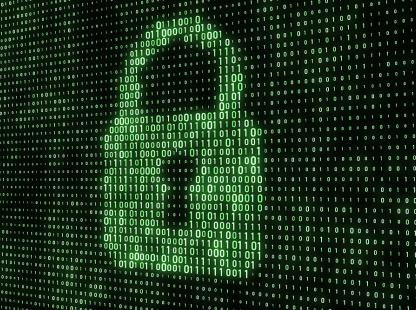As the talent gap widens, universities and tech institutions are responding with more online cybersecurity programs than ever before, making it easier to gain industry-ready skills from anywhere. In this blog, we’ll cover the asynchronous cybersecurity online offerings from NJIT.
MS in Cybersecurity & Privacy
What It Is and Who It's For
An M.S. in cybersecurity and privacy is a comprehensive graduate degree program designed for individuals seeking in-depth knowledge and advanced skills in both technical cybersecurity and the legal and ethical aspects of data privacy. A master’s program typically involves intensive coursework, research opportunities, and often a capstone project or thesis, potentially delving into areas like cryptography and secure communications or the legal implications surrounding identity and access management. The NJIT Online M.S. in Cybersecurity & Privacy will teach you how to identify security vulnerabilities in local, networked, and cloud software systems, and develop rigorous data management and software development workflows.
This program typically takes 1.5 to 2 years and is offered in the fall, spring and summer. The program is ideal for individuals with a bachelor's degree from a related field like computer science, information technology or engineering who are looking to:
- Take on leadership roles in cybersecurity teams, potentially guiding strategies in vulnerability management and threat hunting.
- Specialize in areas like network security architecture, digital forensics and incident response, or data protection.
- Pursue research-oriented careers in academia or industry, perhaps focusing on advancements in malware analysis and reverse engineering.
- Gain a deep understanding of the intersection between technology and legal frameworks related to data, including the application of cybersecurity risk assessment frameworks.

Requirements and Career Outcomes
Most online MS in cybersecurity programs require a bachelor’s degree in a computer science or related field, plus basic programming or technology experience, as is the case here at NJIT. If you're from a non-technical background, it’s recommended to strengthen your knowledge before applying and or enrolling. Certain preparatory courses provide the minimum exposure necessary to set you on a successful path. Our online graduate certificate in Cybersecurity and our online Cybersecurity Professional Bootcamp are both excellent pathways to build on. Other standard criteria include a minimum GPA, transcripts, and optional items such as recommendation letters, a personal statement, and GRE test scores.
Graduates often target job titles like Security Engineer, Security Operations Center Analyst, Incident Response Lead and Security Architect.
Professional opportunities expand into areas such as secure software development lifecycle, malware analysis and reverse engineering, or cybersecurity risk assessment frameworks. Many move into management, consulting, or high-stakes technical roles, with salaries above $100,000 and excellent growth potential.
Graduate Certificate in Cyber Security
Program Overview and Ideal Candidate
A graduate certificate in cyber security offers focused, fast-track learning through online cybersecurity programs. Whereas the MS degree is 10 classes or 30 credits, the certificate is only 4 classes or 12 credits. It can be completed anywhere from 1 to 4 semesters—depending on the structure of the program and your pace. Students cover must-have domains, including ethical hacking and penetration testing, digital forensics and incident response, and cybersecurity risk assessment frameworks. The NJIT Online Graduate Certificate in Foundations of Cybersecurity will teach these essentials along with a wide range of leadership and management skills. This certificate is best for those with some prior computing experience. Those looking to use this as an on ramp to enter the cybersecurity field may find some of the concepts too advanced.
Graduate certificates are designed for working professionals who want to quickly upskill or reskill, as well as those looking to transition into cybersecurity with the right credentials. Ideal candidates may already have an IT background or simply want to test the field before committing to a complete master’s degree. This type of program is also well-suited for those who may not have the time or resources for a full master's degree but want a recognized cybersecurity credential from an online cybersecurity program, potentially focusing on practical skills in malware analysis and reverse engineering. Still, when you're ready to level up, credits from NJIT’s online Cybersecurity Graduate Certificate can be applied toward the online M.S. in Cybersecurity and Privacy—they’re valid for up to 7 years in case you choose to come back and pursue the MS degree at a later time.

Admissions and Professional Benefits
Applicants need a bachelor’s degree; high academic achievement and prior technical experience for the online cybersecurity certificate is also required. Our admissions team looks for candidates eager to learn critical topics like secure software development lifecycle, vulnerability management and threat hunting, or network security architecture.
Earning a graduate certificate supports eligibility for industry-recognized certifications (such as CISSP or Security+), creates opportunities for jobs like Security Operations Center Analyst or Vulnerability Manager, and strengthens promotion prospects. It’s a smart way to build credentials in current online cybersecurity programs without a lengthy time commitment.
Cybersecurity Bootcamp
Format, Audience, and Outcomes
Cybersecurity bootcamps are intensive, practical online cybersecurity programs built to launch careers fast. Lasting approximately 32 weeks, NJIT’s Cybersecurity Professional Bootcamp teaches job-ready skills in security operations center analysis, incident response, ethical hacking, and cryptography and secure communications through our interactive lab, TDX Arena. The TDX Arena platform, combined with the latest industry standards, tools, and technologies, enables you to develop both offensive and defensive cyber skills in a real-world environment.
Bootcamps serve beginners, career changers, or anyone seeking accelerated preparation for entry-level cybersecurity roles. No advanced degree or experience is needed—just motivation and interest. Training covers practical subjects, including malware analysis and reverse engineering, digital forensics, identity and access management, and real-world vulnerability management and threat hunting. More information on NJIT’s cybersecurity bootcamp can be found in the frequently asked questions.
After bootcamp graduation, students are prepared for roles such as Junior Penetration Tester, SOC Analyst, or Security Support Specialist, and can confidently attempt certifications like CompTIA Security+. While you’ll receive a certificate upon completion, credits from the bootcamp are non-transferable to other courses or degree programs. Even so, extensive job search support, resume reviews, and practice interviews are all included as a part of the career prep training. Hands-on experience gained from the TDX Arena platform also allows you to showcase your skills to potential employers.

How to Choose the Right Online Cybersecurity Program
Key Factors to Consider
- Career Direction: Decide if you need the advanced options of an MS in cybersecurity, the focused pace of a graduate certificate in cyber security, or the swift entry of a bootcamp.
- Content Coverage: Look for online cybersecurity programs with well-rounded coursework—ethical hacking and penetration testing, digital forensics and incident response, network security architecture, cryptography and secure communications, vulnerability management and threat hunting, secure software development lifecycle, identity and access management, and cybersecurity risk assessment frameworks.
- Cost and Financial Aid: What is your budget for education in online cybersecurity programs? Master's programs delving into advanced topics like network security architecture and reverse engineering are generally the most expensive, followed by bootcamps and then graduate certificates focusing on specific areas like security operations center analysis. Explore available financial aid options.
- Hands-On Experience: NJIT excels in providing interactive, real-world learning through projects involving malware analysis, incident response, and security operations center analysis, ensuring students gain the practical skills needed for today’s cybersecurity challenges.
- Your Educational Background: Do you have a bachelor's degree? Both an MS in cybersecurity and a graduate certificate in cyber security typically require one. Bootcamps often have less stringent educational prerequisites.
- Time Commitment and Flexibility: How much time can you dedicate to your studies within online cybersecurity programs? Master's programs covering a broad range of topics like secure software development lifecycle and digital forensics and incident response are the most time-intensive, followed by graduate certificates focusing on areas like identity and access management, while bootcamps offer an accelerated format. Consider the flexibility of the online program in terms of asynchronous vs. synchronous learning.
Choose online cybersecurity programs that match your career goals, skill level, and need for flexibility. The best programs provide technical depth, practical training, and strong career pathways in every critical area. When you’re ready to take the next step, enrolling in online cybersecurity courses at NJIT empowers you to build real-world skills, grow your confidence, and move your career forward with purpose.
